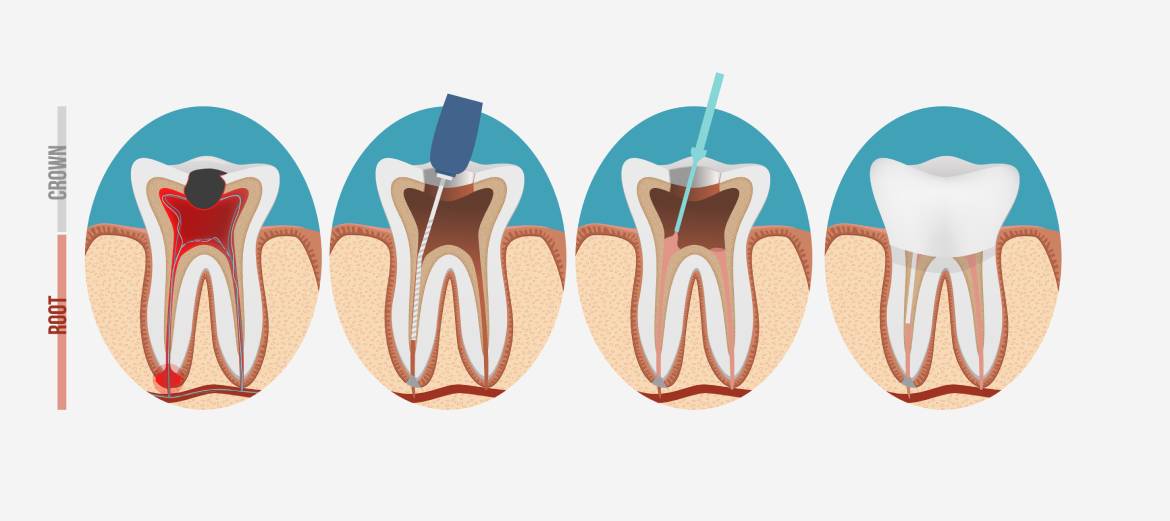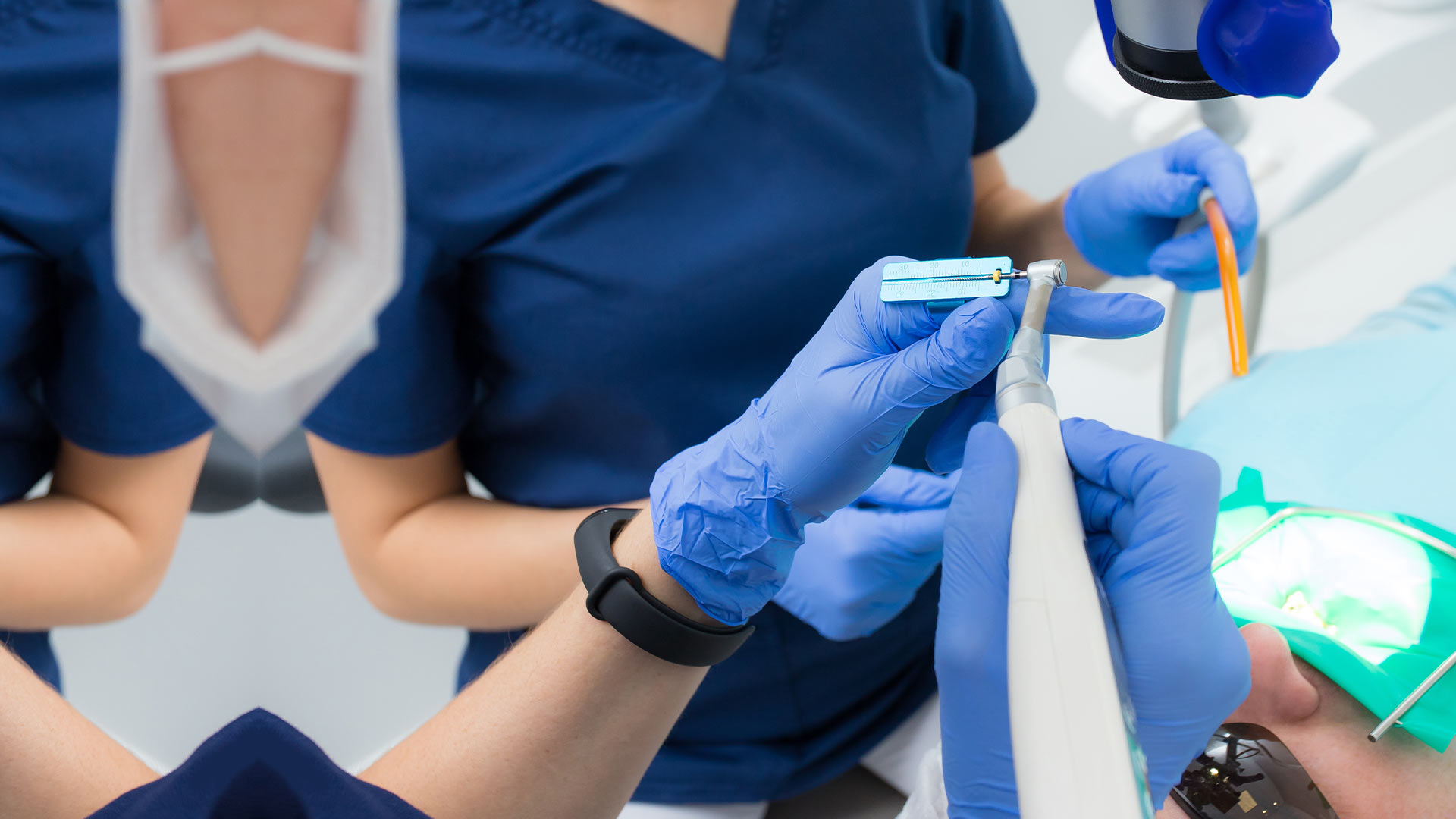root canal Canning Vale
Root canals are often thought of as painful procedures, but with modern dental techniques, they can be performed with minimal discomfort. That’s why we provide gentle, professional root canal treatment for patients in Canning Vale.
At Genesis Dental, we aim to make every dental procedure as comfortable as possible. Our dentists use advanced techniques and effective local anaesthesia to help reduce discomfort during treatment, and we’ll always check in to ensure you feel at ease throughout your visit.
What is a Root Canal?

If the nerve of your tooth has become infected, it may be necessary to have a root canal treatment to eliminate the infection and save the tooth.
Root canal treatments involve several steps to resolve the infection and restore the tooth back to health.
Root canal steps include:
- Cleaning out the infected tooth and treating it with medication to remove the infection. A temporary filling is placed to seal out the bacteria.
- Cleaning and shaping the canals using small files
- Filling the empty canal space with a root filling material, then sealing it with a long-lasting crown.
During the procedure, we’ll keep you informed and as comfortable as possible. Afterward, we’ll provide a detailed after-care plan and support for any questions that come up.
Causes of a Root Canal
Once the enamel of a tooth is compromised by tooth decay, it can spread rapidly. The decay can spread inside the tooth getting closer and closer to the nerve that is in the centre of the tooth. If left untreated, it can cause the nerve to die or get infected and can lead to pain and swelling. It is important to have regular check-ups to detect early signs of decay as for the most part, a simple filling can fix the problem before the tooth requires a root canal.

If you are experiencing any of these symptoms below, you may require a root canal to resolve the issue:
- Injury to the tooth
- Advanced or untreated tooth decay
- Extreme sensitivity to hot or cold foods or beverages
- Severe pain while chewing or biting
- Swelling, pain, or tenderness around your tooth
- Discolouration of the tooth
- Deep decay or darkening of the gums
Side Effects
With advances in dental technology and modern techniques, most patients recover well after a root canal procedure.
However, as with any dental treatment, following after-care instructions is important to ensure a smooth recovery.
After your root canal treatment, you may notice some sensitivity or swelling, particularly if the infection was severe. Discomfort can often be managed with over-the-counter pain relief or medication prescribed by your dentist.
It’s also common for the treated tooth to feel slightly different from the surrounding teeth for a period of time. Contact your dental provider immediately if:
Your bite feels uneven (malocclusion)
You experience an allergic reaction to prescribed medication
The temporary filling or crown becomes loose
You notice swelling inside or outside your mouth
You have severe pain or pressure that persists for more than a few days
Contact Us
We invite you to contact our caring, experienced team of dentists in Canning Vale to learn more about root canals or set up a consultation.
Root Canal FAQs
How can I prevent a root canal?
Proper oral hygiene is crucial for preventing root canals. Brush and floss daily and see your dentist for regular check ups. By looking after your teeth and gums, you can significantly reduce your chance of experiencing a tooth infection.
What is recovery like after a root canal?
We’ll give you a detailed after-care plan to follow after your root canal. Never try to eat while your mouth is still numb. Keep the area clean and use an antibacterial mouthwash to fend off germs. You may experience a dull aching sensation or tooth sensitivity for the first few days after treatment.
After treatment, the unrestored tooth is at risk of fracture and should not be used to bite or chew. It is also important to maintain a good oral hygiene routine that includes daily brushing, flossing, and regular dental checkups.